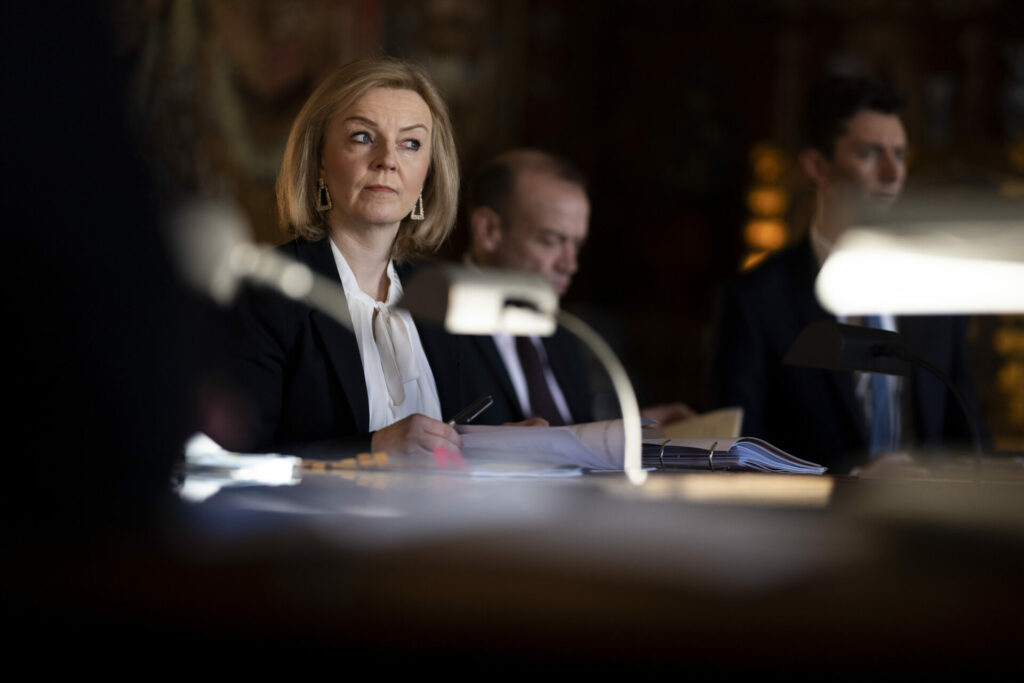BRUSSELS BEHIND THE SCENES
Weekly analysis and untold stories
With SAM MORGAN
Back to the Dark Ages
The United Kingdom’s Brexit hangover continues unabated, as its government decided to trigger official dispute proceedings against the EU over the multi-billion Horizon Europe research funding. It will not end well and science will be the main casualty.
Climate breakdown, unpredictable disease, famine exacerbated by Russia’s war. The three biggest woes facing our world are thankfully not insurmountable and the solutions – if not already obvious – can be unlocked by science and research.
But one of the main culprits responsible for the unchecked rise of those three horsemen of the Anthropocene – toxic politics – looks set to undermine the scientific community further. The trigger is yet again the boring monster known as Brexit.
BRUSSELS BEHIND THE SCENES is a weekly newsletter which brings the untold stories about the characters driving the policies affecting our lives. Analysis not found anywhere else, Sam Morgan helps you make sense of what is happening in Brussels. If you want to receive Brussels behind the scenes straight to your inbox every week, subscribe to the newsletter here.
First, a quick recap. The UK collectively voted to leave the EU in 2016, prompting a tedious negotiation period, during which time British negotiators tried to pick and choose which tasty bits of Brussels policymaking they wanted to remain associated with.
One of those tidbits was the Horizon Europe research programme. A hugely successful multi-billion-euro initiative that supports all levels of R&D&I, which includes non-EU countries and helps foster scientific collaboration around the world.
The UK’s enhanced participation was written into the eventual agreement that was signed, sealed, ratified and laminated by the parliaments of both sides, pending full implementation of the rules that both parties had agreed.
Enter the lunatic-wing of the Conservative Party.
A crucial element of the UK-EU deal was the Northern Ireland Protocol, which dealt with the tricky question of what to do with single market access, the Good Friday Agreement and other problematic trade issues that had vexed both sides for years.
The leading Tories decided that the ‘NIP’ was no good and had to go, breaking international law in a “limited and specific way”. The European Commission put the brakes on UK involvement in Horizon Europe until the agreement was respected.
It of course has not been respected and now the UK’s ruling party is mired in an internal competition to pick its new leader and replacement for the freshly-jettisoned Boris Johnson. One of the candidates, Liz Truss, has decided to throw a litre of petrol on the fire.
The outright favourite to succeed Johnson as prime minister triggered a consultation process on Tuesday. This is the first step of a dispute mechanism set out in the UK-EU deal and Brussels now has 10 days in which to reply to the official request.
“The EU is in clear breach of our agreement, repeatedly seeking to politicise vital scientific cooperation by refusing to finalise access to these important programmes,” Truss insisted, prompting scorn from some EU diplomats who have not forgotten the UK’s different interpretation of sticking to deals.
European university groups have backed the UK’s decision, as they have for many months pleaded with the Commission to forget about politics and clear the way for British researchers to access grants and funding.
But that was never going to happen. The rules are the rules and the UK showed no intention to stick by them, putting Brussels in an impossible position. A quick resolution to the dispute is unthinkable at this stage.
If, as seems likely, the UK presses on with its complaint, an independent resolution board will be appointed and the saga will drag on for months to come. For scientists on the ground, it is the worst possible news.
Research programmes and scientific projects need months if not years of pre-planning. Funding has to be found and then allocated. The uncertainty caused by Brexit in this sector cannot be quantified but is undoubtedly massive.
The UK government has put aside a couple of billion pounds to create its own research fund, but that will fall short of the scope of Horizon, which is built both on financial firepower and access to international networks that researchers can tap into.
It will be a similar story to other EU programmes like Erasmus and regional funding, where Westminster alone – especially under the guidance of a Conservative government – will be unable to match what a union of 28 countries could have achieved.
Even if an agreement is eventually brokered between London and Brussels, it is likely that Horizon applicants on the wrong side of La Manche will have to wait until 2028 – the start of the next EU budget cycle – to get their hands on the euros they desperately need.
No one can wait that long, so the brightest and best will either give up on their work or relocate to a country that can offer the financial and non-financial perks needed to make their ambitions a reality.
News pictures showed this week raw untreated sewage spewing out of control across an English beach and into the sea. The authorities blamed heavy rainfall but it would be difficult to imagine a more fitting analogy for the UK’s current malaise.
BRUSSELS BEHIND THE SCENES is a weekly newsletter which brings the untold stories about the characters driving the policies affecting our lives. Analysis not found anywhere else, Sam Morgan helps you make sense of what is happening in Brussels. If you want to receive Brussels behind the scenes straight to your inbox every week, subscribe to the newsletter here.

